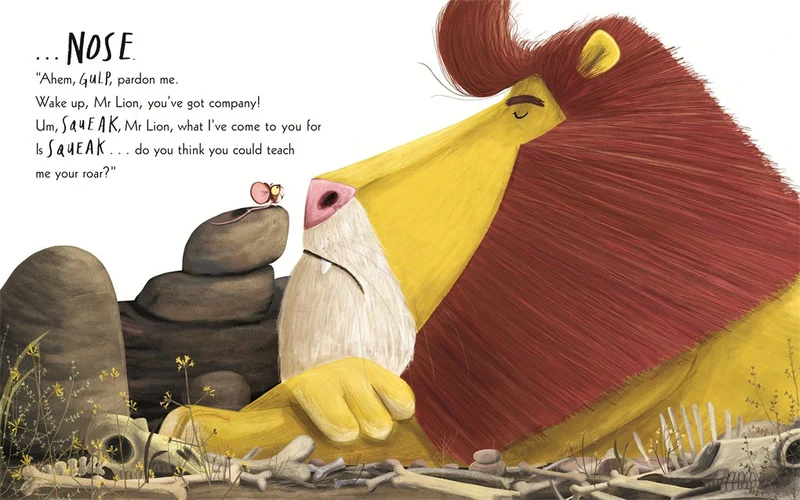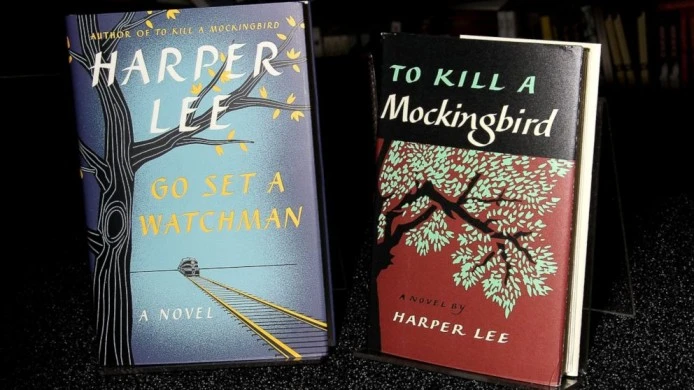Crime Sprees, Both Creepy and Comic

Thomas Perry pulls the old switcheroo in A SMALL TOWN (Mysterious Press, $26). Instead of sending a single endangered innocent on a desperate race to escape some nefarious villain, he lets a group of villains loose on a defenseless town and sends a lone avenger to chase them down. Ever the master of detail, Perry first takes us to the Weldonville Federal Penitentiary in rural Colorado to marvel at the ingenuity of a dozen prisoners who escape by killing a dozen guards. But that’s not the worst of it. After dressing in the guards’ street clothes, the escapees allow more than 1,000 other prisoners to descend on the town “like an invading army” to kill and rape and burn the place to the ground. In effect, “they murdered Weldonville.” Two years later, Lt. Leah Hawkins is put on leave from the Colorado Bureau of Investigation and unofficially licensed to hunt and kill the 12 ringleaders, now scattered across the country.
Hawkins commences her crusade with Albert Weiss, who murdered a guard named Harry Costa and his family and is now holed up at his mother’s house in Naples, Fla. After polishing off Weiss, Hawkins heads to Buffalo, “the City of Good Neighbors,” to inflict her brand of vigilante justice on Viktor Panko, a master forger who murdered another guard, raped his schoolteacher wife and left her tied up for a fresh wave of escapees.
In each case, Perry is meticulous about describing the particulars of Hawkins’s tactics, from tracing one felon through his taste in ethnic food to infiltrating a white supremacist gang that another is operating in the Ozarks. In the end, any moral argument raised by the killings seems to interest this author less than the detailed planning behind them and the craftiness of the strategies used to execute them. Sorry to do this to you, old chum, but aren’t you awe-struck by the beauty of my technique?
♦
Whatever your literary tastes, a shot of Amos Walker is always bracing. A Detroit private eye of the old school, he smokes, he drinks, he uses creative language and, as he says in Loren D. Estleman’s WHEN OLD MIDNIGHT COMES ALONG (Forge/Tom Doherty, $26.99), “I’m not against getting my hands dirty, but when I do I like to know the reason.” Walker’s client, Francis Xavier Lawes (“You can call me X”), is paying him good money to determine whether his wife, who has been missing for six years, is well and truly dead, freeing X to remarry.
Since the police investigator who originally worked the case was mysteriously shot to death, the assignment is not without its downside. But Walker works hard for the money (“When they say Detroit’s coming back, they don’t mean you’re coming with it”), and a job is a job. This one takes him all over, from the Grosse Pointe Yacht Club to a grungy TV repair shop in Dearborn, the digs of another Detroit booster like himself, a fence who has never journeyed beyond the greater metro area. The terrain may be restrictive, but hanging out with Walker offers limitless pleasures.
♦
Can it still be hurricane season? Must be, because here come Serge A. Storms and his perpetually stoned bro, Coleman, in Tim Dorsey’s gonzo crime caper NAKED CAME THE FLORIDA MAN (Morrow, $27.99). Serge and Coleman can’t be called hurricane chasers because hurricanes and other disorders, natural and unnatural, tend to chase them. Here they’re tearing up the Interstate in a 1969 Plymouth Satellite, coming from the Keys, where they spent a few productive days touring the local cemetery pursuing Serge’s latest hobby, making tombstone rubbings.
As they proceed along “our cemetery tour of Florida,” motormouth Serge dispenses arcane, often horrific tidbits of local history, including the information that many African-Americans, victims of the Big Wind of 1928 (as the Seminoles referred to that year’s devastating hurricane), were unceremoniously buried in a mass grave — and some of them had been murdered.
The time-toggling plot frequently slips into the past to record such events, a device that’s just as eerie, especially when it latches onto a bit of local folklore about a haunted sugar field and a spook known as the Naked Florida Man.
♦
On a sliding scale, all of these events are disturbing: Pruning shears are found in your child’s backpack at school; you learn that your husband has been abusing a young woman who works for your neighbor; your child is found floating in an icy pond. And they all occur in THE PLAYGROUND (Morrow, paper, $16.99), by the British author Jane Shemilt.
Close friendships can be dangerous, we learn, when three married couples whose children are being treated for dyslexia are enjoying such good times together that they fail to notice their children have become almost feral.
The shifting points of view — from parents to children and back again — drain a certain amount of tension from scenes of otherwise surefire suspense. And the “Lord of the Flies” vibe is a bit too obvious. But the death of a child, generally treated with mawkishness, is handled here with riveting creepiness — not to mention a hint of bad taste. When a child named Ash is cremated, one mourner can’t resist observing, “Ashes to ashes.”




